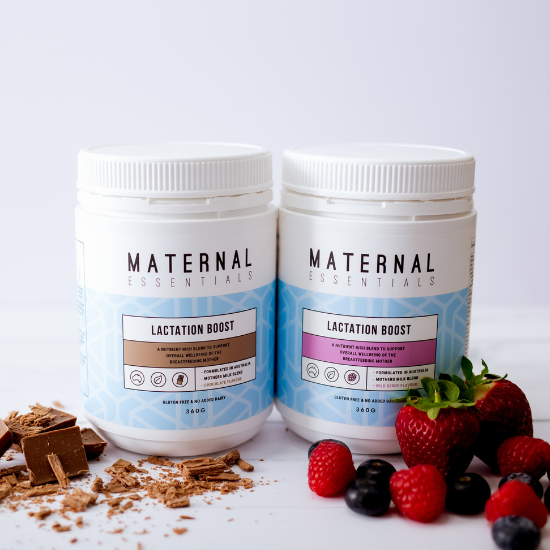There is a huge amount of misinformation about things you shouldn’t be eating & drinking during pregnancy. This can lead to confusion and anxiety for mothers and what they can and can’t eat. We are sure that although your neighbour or your childhood friend means well when they rudely point out “oh- you’re eating THAT!”. Fear not mama, let us clarify for you once and for all what foods you DON’T need avoid during pregnancy.

FOODS YOU DON'T NEED TO AVOID:
FISH:
Is rich in Omega-3 fatty acids (particularly DHA) & protein to promote healthy brain and cognitive development in bub. You want to optimise your intake of certain, small, fatty fish like salmon, sardines, anchovies and mackerel. These fish contain lower levels of heavy metals such as mercury and are safe to eat 2-3 times per week. Larger fish like tuna and swordfish is best to be avoided or only consumed 1x per week, as these do contain high levels of heavy metals that can detrimental to bubs development.
DAIRY:
Good quality dairy is a fantastic source of calcium, vitamin D, iodine, protein and other essential nutrients you need to support your health and bubs development during pregnancy. Some suggest that not eating dairy during pregnancy will reduce risk of eczema, dairy intolerances etc.. HOWEVER, this is unfounded! Consuming typical allergens during pregnancy has actually shown to be protective of reducing risk of allergy when bub is born. The only reason you should be excluding dairy if you are intolerant/allergic or for personal dietary choices
LIVER:
Fully cooked, organic liver is OK to eat during pregnancy. Liver has HUGE of misinformation surrounding it due to its vitamin A content and link to birth defects. Lets have a brief look over this:
Liver is a wonderful source of naturally occurring vitamin A which is vital for bubs eye development & immune function. Your baby solely relies on you to get their vitamin A, so if you are vitamin A deficient, this will impact the growth and development of your baby.
There was a historic study which suggested that high doses of SYNTHETIC vitamin A (over 10,000IU from supplements) may increase risk of birth defects. That is A LOT of liver you would need to consume! The results of this study have since been disproven, and small quantities of naturally occurring vitamin A are perfectly safe and required during pregnancy. It is still best to avoid synthetic & supplemental forms of vitamin A during pregnancy and to rely on dietary sources alone.
When consuming liver, always opt for organic and make sure to fully cook it through before eating. You can freeze the liver after purchasing and then grate around 1-2 tbsp your food while cooking. By grating the liver, you make the pieces small enough to cook quickly and it just melts away into nothing! You can safely consume liver between 1-2x per week during pregnancy. It is important to note that you still should avoid pre-packaged liver products such as pate to reduce risk of food poisoning.
HAM:
What no ham and cheese toastie?!?! Not to worry. The concern about eating ham and other deli meats is that it can increase risk of food borne illness posing risk to both you and baby. Do you need to stop eating ham? No not necessarily. As long as you cook it, it can be safe to eat. It's also important to remember that the food safety and hygiene standards in Australia are very high, therefore the likely hood of bacterial contamination from ham is very low.
So, go ahead and enjoy that grilled ham and pineapple, 80's style!
PEANUTS:
There is a myth that consuming peanuts during pregnancy can increase the risk of peanut allergy later in childhood. Well, let’s DEBUNK this myth!
Peanuts and other common food allergens are perfectly safe to consume during pregnancy (obviously don’t eat these foods if you do have an allergy!). The food proteins from these foods will cross through the placenta and actually provide a protective antibody response for baby. Consuming peanuts and other allergens during pregnancy will actually REDUCE the risk of food allergies later in life.
SPICY FOOD:
Spicy food is typically recommended to mothers to help induce labour. The theory is that spicy food can help to loosen your bowels, and if you are running to the toilet it stimulates the same muscles needed to help support contractions during birth. Well, this needs to be clarified- spicy food will NOT induce labour.
What spicy food will do however, is expose your baby to a wide range of different tastes and flavours that can actually help to develop their tastes buds and make them less of a fussy eater when the grow up! Your baby can actually taste a majority of foods and drinks that you eat, which is why it is super important to eat a varied diet during pregnancy. You don’t need to go all out on the hot sauce, but you can safely include different milk curries, spices and herbs to really boost the flavour of your diet. Not only will you be receiving health benefits from herbs and spices (they are filled with nutrients, minerals and antioxidants) but your baby will be having a flavour explosion in the womb!


